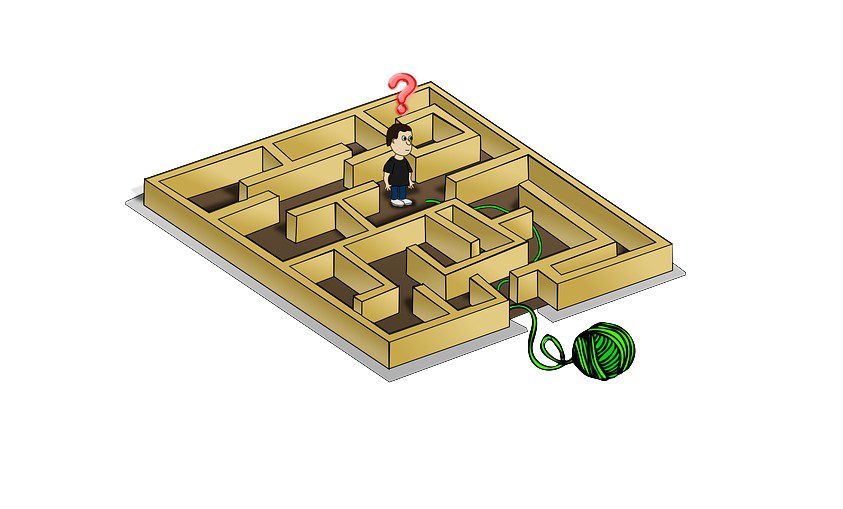From the first fleeting smiles to the stories they tell about their adventures, memory is very important in shaping the brain of your child, in readiness for the world. It is the foundation for learning, language development, and building a sense of self.
Understanding how memory works during childhood sheds light on how children process information and build their understanding of the world. This ultimately prepares them to become adults.
But exactly what is memory?
What Memory is and Not
Memory is the ability to encode, store, and retrieve information and experiences. It involves the process of forming and maintaining representations of the world in the mind.
Encoding refers to the process of taking in and transforming information so that it can be stored in the brain. Storage involves retaining the encoded information over time. Finally, retrieval involves accessing and bringing back the stored information when it is needed.
Memory is essential for learning, decision-making, and problem-solving. It allows all of us to store and retrieve information about past experiences, knowledge, and skills.
There are several types of memory, including sensory memory, short-term memory, and long-term memory.
- Sensory memory is the first stage of memory, where information is briefly stored for a fraction of a second after being received through the senses.
- Short-term memory is where information is temporarily stored for several seconds or minutes, before either being forgotten or transferred to long-term memory.
- Long-term memory is the final stage of memory, where information is stored indefinitely and can be retrieved when needed.
Overall, memory is a complex cognitive process that plays a critical role in our daily lives, enabling us to retain and retrieve information and experiences from our past.
The Importance of Memory in Child Development

Memory plays a critical role in a child’s growth and development:
Learning: Memory is essential for learning as it helps children retain information and recall it later. This is particularly important during the early years when children are learning new skills and knowledge rapidly.
Cognitive Development: Memory is closely tied to cognitive development, which includes attention, perception, language, and problem-solving skills. As children grow, their memory capacity also increases, which helps them to acquire more complex skills and knowledge.
Social Development: Memory is important for social development as it allows children to remember faces, names, and important events. This helps children to form relationships and build social connections.
Academic Performance: Memory is essential for academic performance as it helps children to remember facts, concepts, and ideas. Children with good memory skills are better equipped to succeed in school and excel in academic activities.
Emotional Development: Memory is also important for emotional development as it allows children to remember positive experiences and emotions, which can help to build resilience and self-esteem.
In summary, memory enables children to learn, develop cognitively and socially, perform well academically, and build emotional resilience.
What is the Relationship Between Memory and Executive Functions?

Memory and executive functions are closely related cognitive processes. They work together to enable us to function effectively in daily life. Executive functions refer to a set of mental processes that are responsible for planning, organizing, and completing tasks, as well as regulating behavior and emotions.
Memory is essential for many executive functions, including working memory, which is the ability to hold and manipulate information in the mind for a short period of time. Working memory is necessary for planning and problem-solving, as it enables us to hold and manipulate information while carrying out complex tasks.
In addition, long-term memory is important for the planning and execution of future actions, as it allows us to retrieve information about past experiences and use it to guide ou behavior in the future.
Executive functions, on the other hand, are important for the control and regulation of memory processes. For example, inhibitory control is an executive function that allows us to suppress irrelevant or distracting information, which can interfere with memory encoding and retrieval.
Another example is cognitive flexibility, which allows us to adapt to changing situations and switch between different tasks or strategies. This is important for memory, as it enables us to adjust our approach to learning and recall, depending on the demands of the task.
The Relationship Between Child Memory and Technology

Technology has become an undeniable part of our lives, and children are no exception. While it offers educational opportunities, entertainment, and connection, its impact on memory development is a complex and evolving topic.
On the one hand, technology can potentially enhance memory formation. For example, interactive learning apps, educational games, and virtual reality experiences can provide engaging ways to learn and encode information. Additionally, tools like cameras and digital journals can help children create external memory aids, solidifying their recollections.
However, there are also potential drawbacks to consider:
- Information overload: The sheer amount of information and stimuli children encounter through technology can be overwhelming. This can lead to difficulty focusing, prioritizing, and encoding memories effectively.
- Passive consumption: Technology often presents information in a passive manner, reducing the need for active processing and critical thinking, which are crucial for memory consolidation.
- Distraction and multitasking: The constant notifications, alerts, and multitasking nature of many digital platforms can fragment attention and hinder the ability to form strong memories.
- Reduced reliance on internal memory aids: With the constant availability of information online, children may become less inclined to develop internal memory strategies like memorization or mental rehearsal.
Therefore, it is important to find a balance between the potential benefits and drawbacks of technology for child memory development.
Here are some key considerations:
- Age-appropriate applications: Choosing technology that aligns with a child’s developmental stage and learning needs is vital.
- Critical thinking skills: Encouraging children to question and analyze the information they encounter online, fostering deeper understanding and memory retention.
- Interactive engagement & Curated content: : Prioritizing interactive experiences over passive consumption encourages active processing and deeper learning. Also selecting high-quality educational apps, games, and resources that encourage active learning and memory consolidation.
- Real-world application: Helping children connect their digital experiences to the real world, solidifying their memories and promoting meaningful learning.
- Limiting screen time: Setting clear boundaries on screen time allows for other activities that promote memory development, like play, physical activity, and social interaction.
- Parental guidance: Actively engaging with children while they use technology can help them critically evaluate information, develop healthy digital habits, and build stronger memories of shared experiences.
How to Improve Your Child’s Memory as a Whole

Exercise: Physical activity helps increase blood flow and oxygen to the brain, which can enhance memory and cognitive function.
Healthy diet: A diet rich in fruits, vegetables, whole grains, and lean proteins can help improve brain function and memory.
Sleep: Adequate sleep is crucial for memory consolidation, so make sure your child is getting enough rest each night.
Memory games: Engage your child in fun memory games such as matching games or memory cards to help exercise their memory.
Visualization techniques: Encourage your child to visualize information in their mind to help remember it better. For example, if they are trying to remember a list of words, have them picture each word in their mind.
Reduce stress: High levels of stress can impair memory, so help your child manage stress through relaxation techniques such as deep breathing or meditation.
Chunk information: Children’s developing brains have limited memory capacity. Presenting information in small, manageable chunks (“chunking“) can help them develop better memory.
Reading: Encourage your child to read regularly and widely, as this can improve memory, concentration, and cognitive function.
Remember to consult with your child’s pediatrician before trying any home remedies, especially if your child has any underlying medical conditions.





Leave a Reply